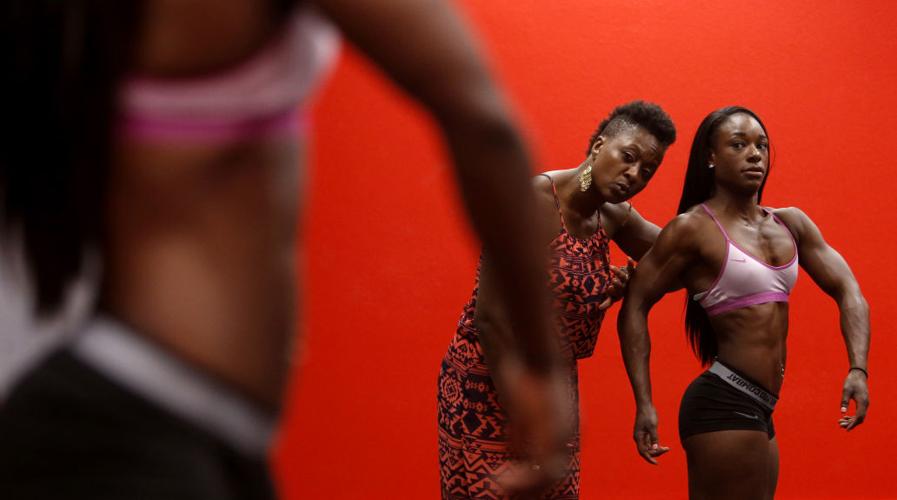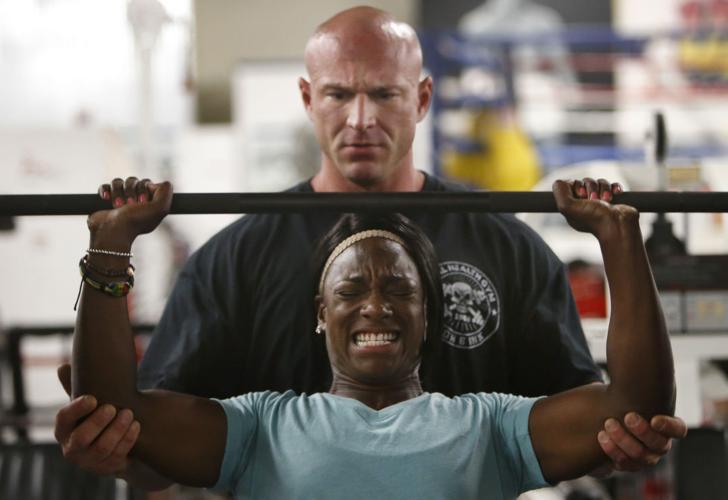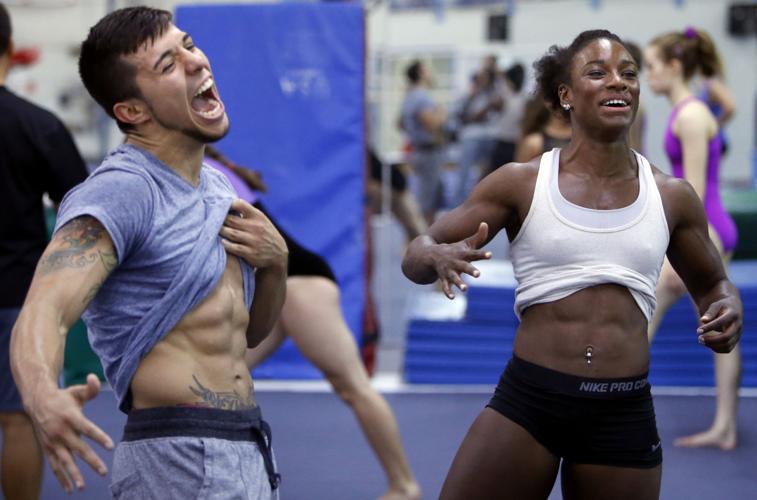Like so many aspiring gymnasts, Savannah Hodges’ career was over before she could buy a lottery ticket.
It was a torn meniscus that claimed her, along with a broken arm and an ACL sprain. The doctors said that if she kept competing and training at high intensity, she could risk serious damage to her knees.
And Savannah Hodges is not the kind of person to put 99 percent of herself into something, much less 50 percent.
She was not even out of Tucson High before she realized she could not do it in college, but she stayed active, stayed fit and definitely stayed competitive.
She tried CrossFit, and it didn’t stick, but when she got a call from her cousin, Tanae, asking if she wanted to jump into the world of bodybuilding and fitness, it didn’t take her long to answer.
It didn’t take long for her to succeed, either.
Now, after winning state and local competitions, Hodges will venture to Pittsburgh later this week to compete in the International Federation of Bodybuilding and Fitness National Championships, her first national competition.
“It was something new, and I’d never really looked into it or watched a show before,” she said. “I was super green.
“But I was eager, and I started training, saw my body develop, and it was cool watching the process. Like, ‘OK, I can get into this.’ If I’m gonna do it, I do the whole thing.”
She’ll venture east to compete in the fitness competition — which combines elements of posing and flexing with displays of athleticism via dynamic movements — with a goal of acquiring an IFBB pro card, which would allow her to get sponsors and compete professionally.
Her gymnastics background comes in handy, not just because she is able to incorporate some of her old moves and skills in the competition, but in preparation as well.
“I came from a sport that was very structured, very goal-oriented, lots of repetition,” she said. “I was used to that lifestyle.
“The hardest part was the dieting. But the work ethic in the gym is the same. You get in there, you focus, every rep counts, every set counts and you go until you can’t move the weight anymore.”
One of five children, Hodges’ gymnastics “career” — if you can call it that — began at the age of 5, when, she said, “as soon as you turned 5, you had to play a sport or an instrument. You were given a choice.”
Hodges’ parents, though, were not stage parents, she said.
Now 25, she has grown up motivated and organized, but not with the warped sense of duty that befalls some (most?) young athletes or entertainers.
“I’m glad they’re not as involved in sports — they didn’t really understand the gymnastics thing, but they let me enjoy it,” Hodges said. “My mom would ask, ‘What new skills did you learn?’ and I’d try to explain it to her.
“They weren’t like ‘You have to do this because you have to go to the Olympics.’ It was like ‘If you enjoy it, we support you. If you want to quit, we support you.’”
She’s been able to live and learn and evolve. In fact, she competes in the fitness category and not the bikini or figure categories because she wanted to challenge herself.
She works out religiously and eats a specifically tailored diet prepared by her trainer, John Augustyniak.
She is in it to win it.
She’s always been this way, even in a gymnastics career that ended early, or maybe, at just the right time.
“It molded me into the person I am,” she said. “It’s hard to shake that. It’s so rigorous.
“(Gymnastics) makes you a certain way. I couldn’t imagine sitting on the couch watching cartoons. I was at the gym. You have lunch and go back to practice. ... I didn’t have time for sleepovers.”









